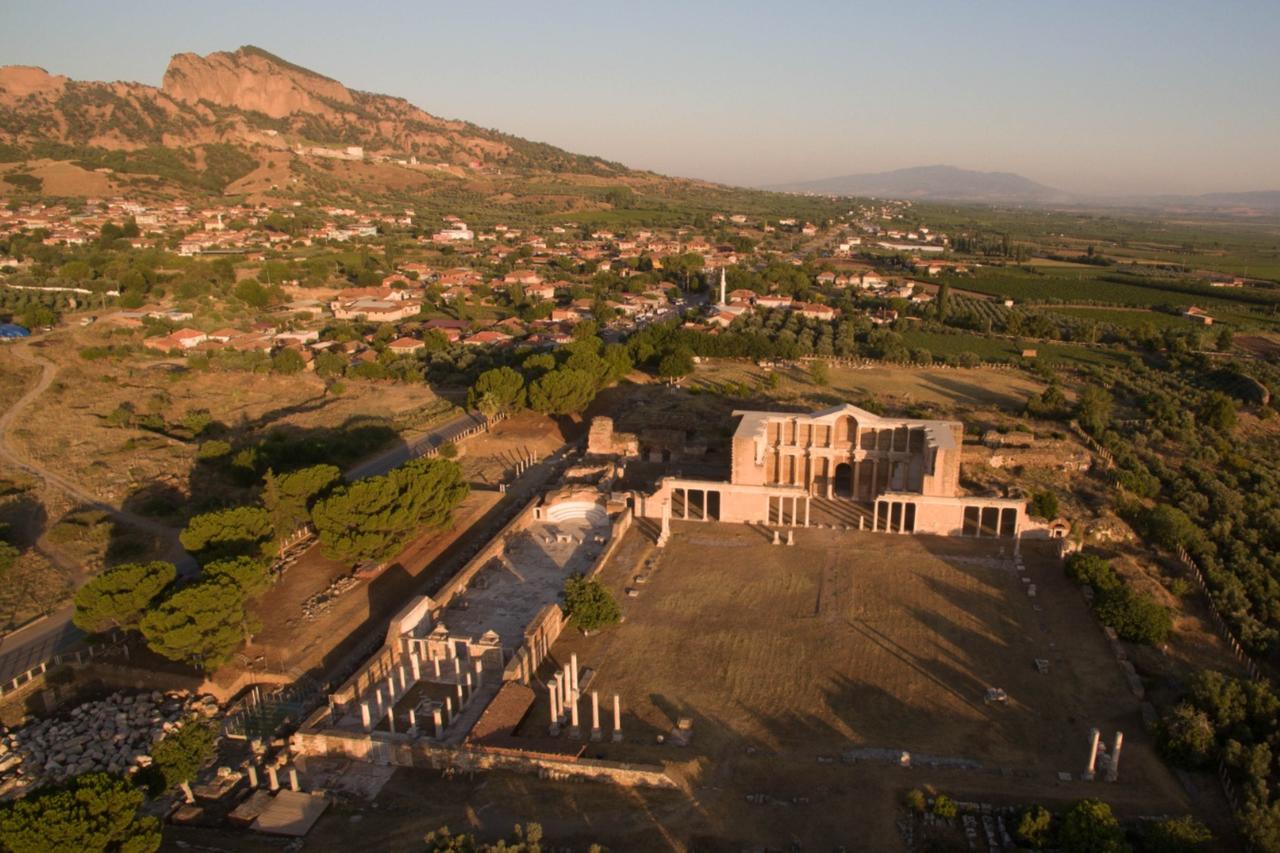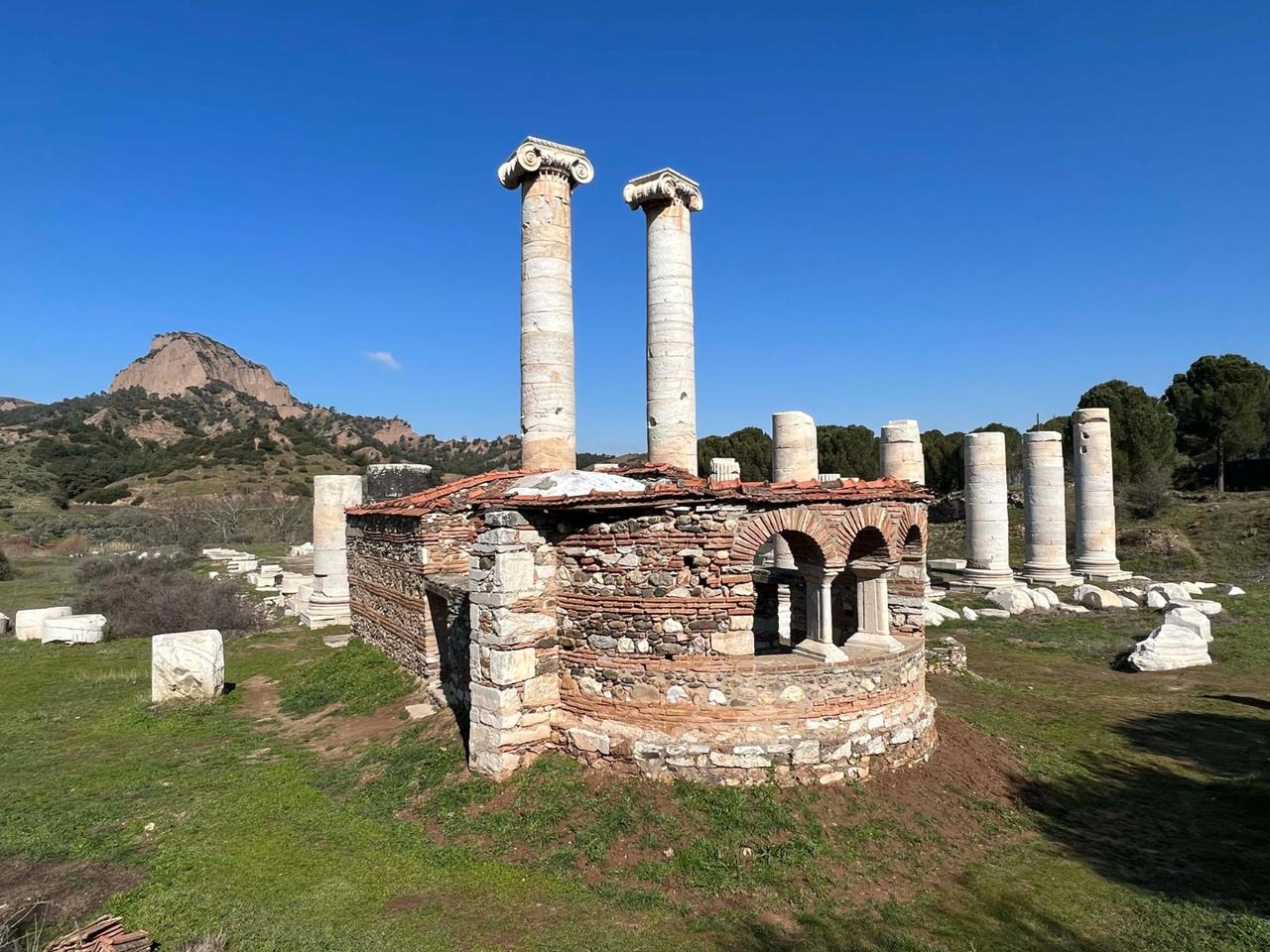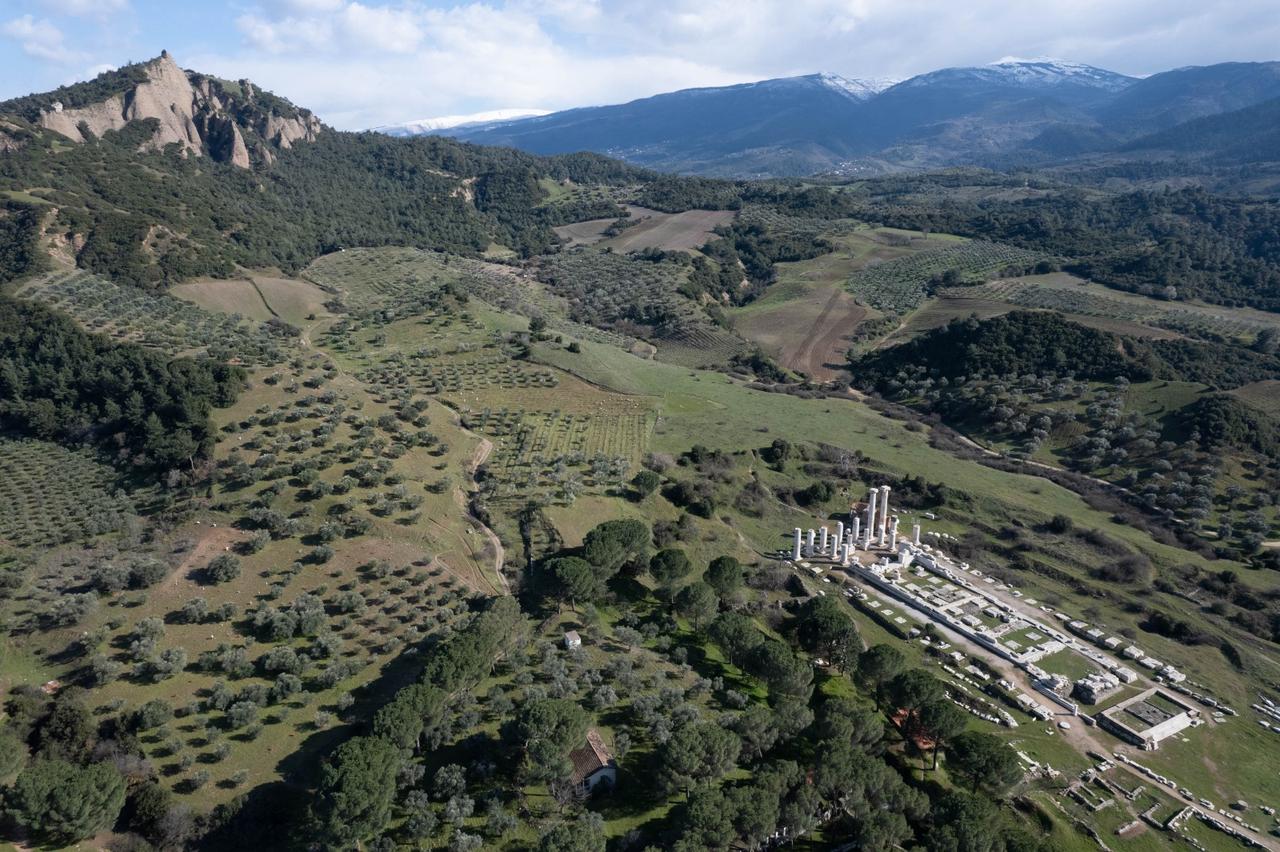
The ancient city of Sardis and the Lydian Tumuli of Bin Tepe in Türkiye’s western Manisa province were inscribed Saturday on the UNESCO World Heritage List, marking the country’s 22nd entry.
“This unique geography, once the capital of the Lydian civilization and birthplace of the world’s first coin, is now recognized as part of humanity’s shared heritage,” Culture and Tourism Minister Mehmet Nuri Ersoy said in a post on social media.
Ersoy thanked all those who contributed to the nomination and encouraged the public to visit Sardis, now open to visitors under Türkiye’s "night museum" initiative..
“Türkiye’s cultural treasures will continue to emerge one by one during the Century of Türkiye,” he added.
In a separate statement, the Turkish Foreign Ministry said the inscription was made during the 47th Session of the World Heritage Committee in Paris.

Sardis served as the capital of the Lydian Kingdom from the 8th to the 6th centuries BCE, becoming a powerful regional center and home to the invention of coinage. The city was known for its immense wealth, sociocultural development, and advanced infrastructure.
The archaeological site includes three main areas: the acropolis, the fortified urban core, and extramural settlements with tumulus-style burial grounds. Massive stone walls and terrace systems mark the upper city, while the lower areas feature mudbrick homes, rock-cut tombs, and a gold refinery.
Sardis remained inhabited for nearly 3,000 years, witnessing Hellenistic, Roman, and Byzantine rule.

North of Sardis lies Bin Tepe, a vast necropolis featuring 119 tumuli scattered across 75 square kilometers. Construction of the burial mounds began in the 7th century BCE during the Lydian era.
Among them is the Tumulus of Alyattes, regarded as one of the largest monumental tombs in the world. The Persians later continued the tumulus tradition following their conquest of the region, with usage extending into the 4th century BCE.
With this latest recognition, Türkiye continues to expand its global heritage footprint, underscoring its role as a cradle of ancient civilizations.